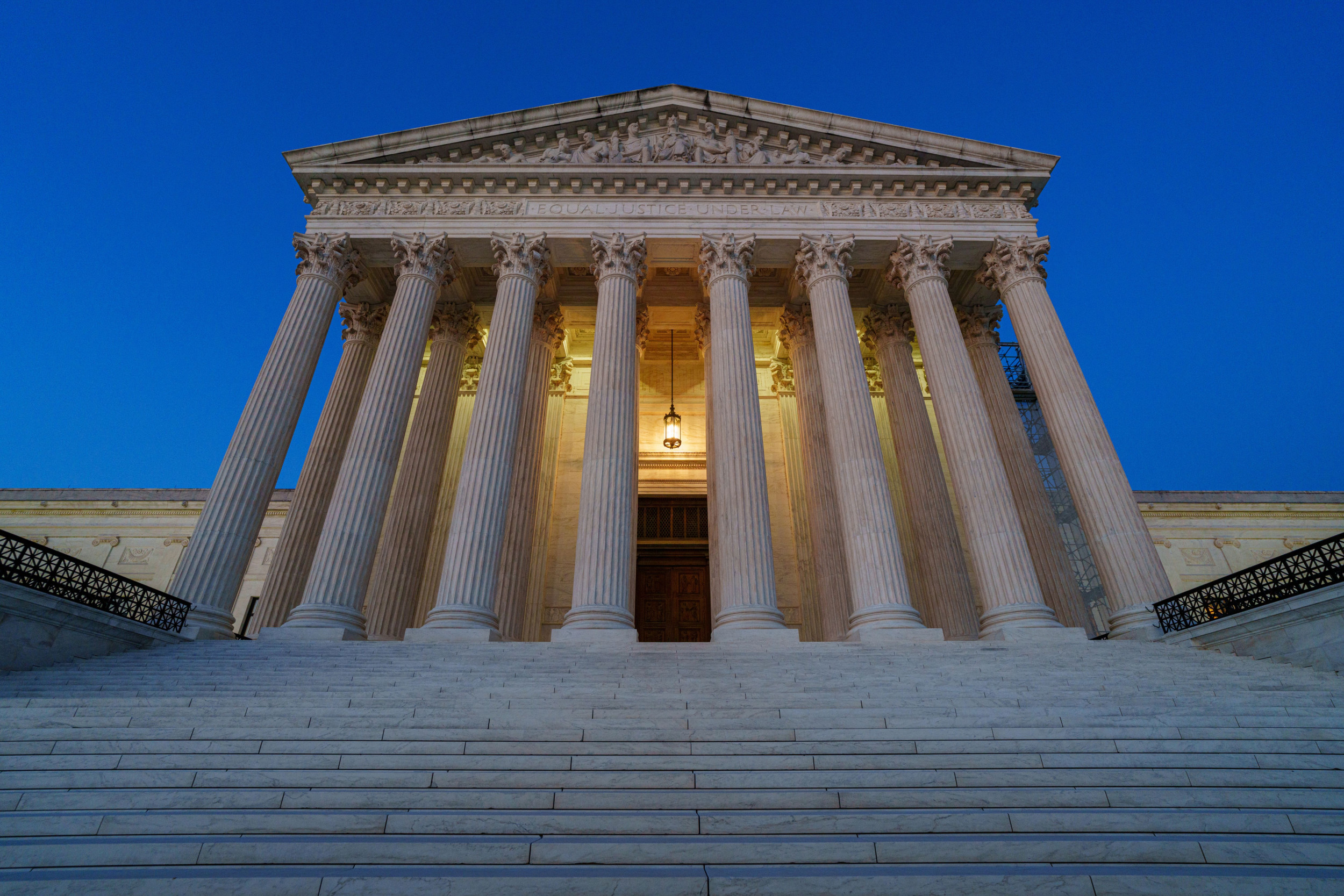As we countdown the three months until the start of the next Supreme Court session, there’s a chance we may hear from the justices on several significant matters before the first Monday of October.
Despite being on a summer hiatus following a tumultuous 2023-2024 term, the justices typically address emergency appeals promptly, even during their break.
The cases on the shadow docket are expedited with no requirement for oral arguments and often decided through unsigned orders lacking extensive explanations on the majority justices.
Currently, the Supreme Court faces four substantial requests for emergency relief involving major political issues: student loan debt, Title IX, climate change standards, and the felony conviction of former President Donald Trump.
Student Loan Debt
A case that may see a swift resolution is Alaska v. Department of Education, where Republican state attorneys general from Alaska, South Carolina, and Texas seek to partially block President Joe Biden’s Saving on Valuable Education (SAVE) program.
The SAVE program was unveiled by the Biden administration following the defeat of his previous forgiveness plan, aiming to offer income-driven repayment plans. Approximately 8 million borrowers have enrolled in SAVE so far, according to the White House.
Challenges to the SAVE program argue that, like the forgiveness plan, the administration exceeded its authority. The U.S. Court of Appeals for the Eighth Circuit recently granted an administrative stay in a separate case involving the SAVE program.
Title IX
The Department of Education has filed emergency applications in cases Department of Education v. Louisiana and Cardona v. Tennessee urging the Supreme Court to address nationwide injunctions blocking new Title IX rules.
The revised rules extend sex discrimination protections to include sexual orientation and gender identity, enhance safeguards for pregnant students, and modify how schools handle claims of sexual harassment and assault.
The Solicitor General is requesting partial stays of the injunctions, citing that they are overly broad. Justices Kavanaugh and Alito have asked Republican-led states opposing the rules to respond to the applications before the rules are set to take effect on August 1.
Climate Change Regulation
The Supreme Court received an emergency request from West Virginia and 24 other Republican state attorneys general seeking to bypass the D.C. Circuit in a case concerning updated Environmental Protection Agency standards for power plant emissions.
The red states are urging the justices to stop the enforcement of the regulations, deeming it reminiscent of a previous plan that was blocked by the Supreme Court two years ago.
Trump’s Conviction
Missouri Attorney General Andrew Bailey recently petitioned the Supreme Court to intervene in Trump’s legal matters, specifically to halt his sentencing hearing and gag order in New York following his felony conviction.
Being at the center of issues directly affecting the former president, the Court faces renewed pressures concerning Trump’s immunity arguments and the legal proceedings against him.
New York Attorney General Letitia James responded, asserting that Missouri had no grounds to involve the Supreme Court in the case, indicating that such relief sought by Missouri should be resolved in state courts.
